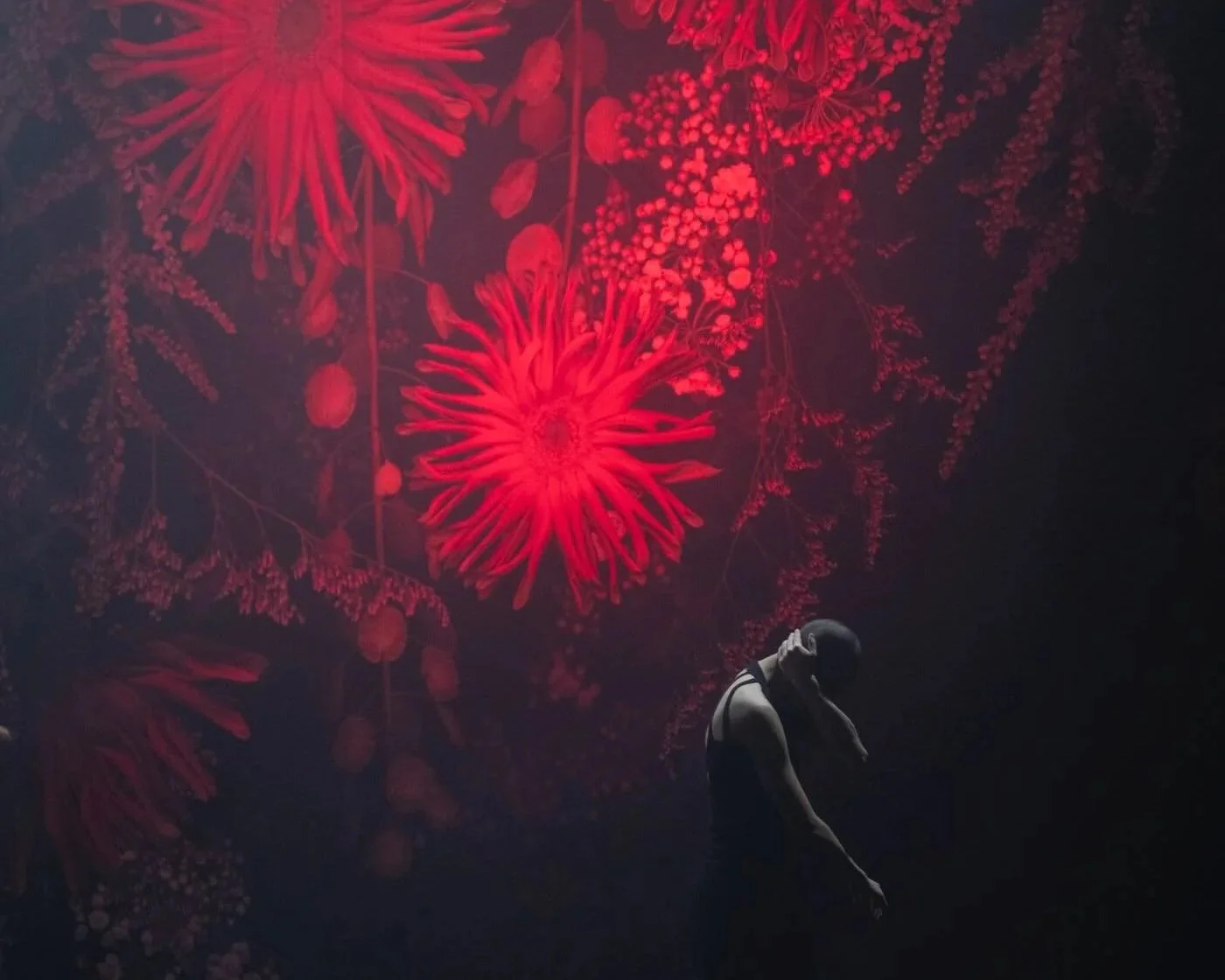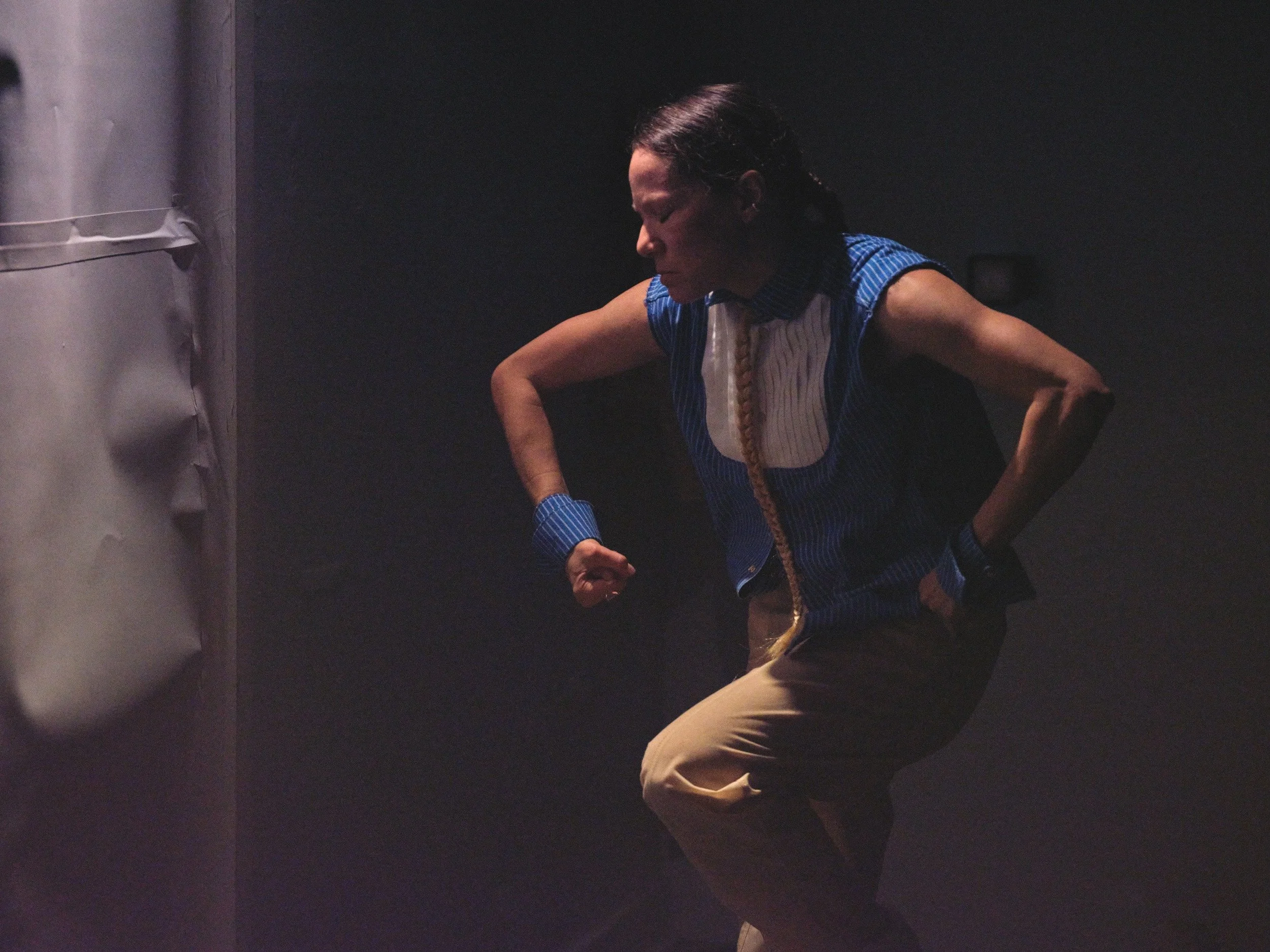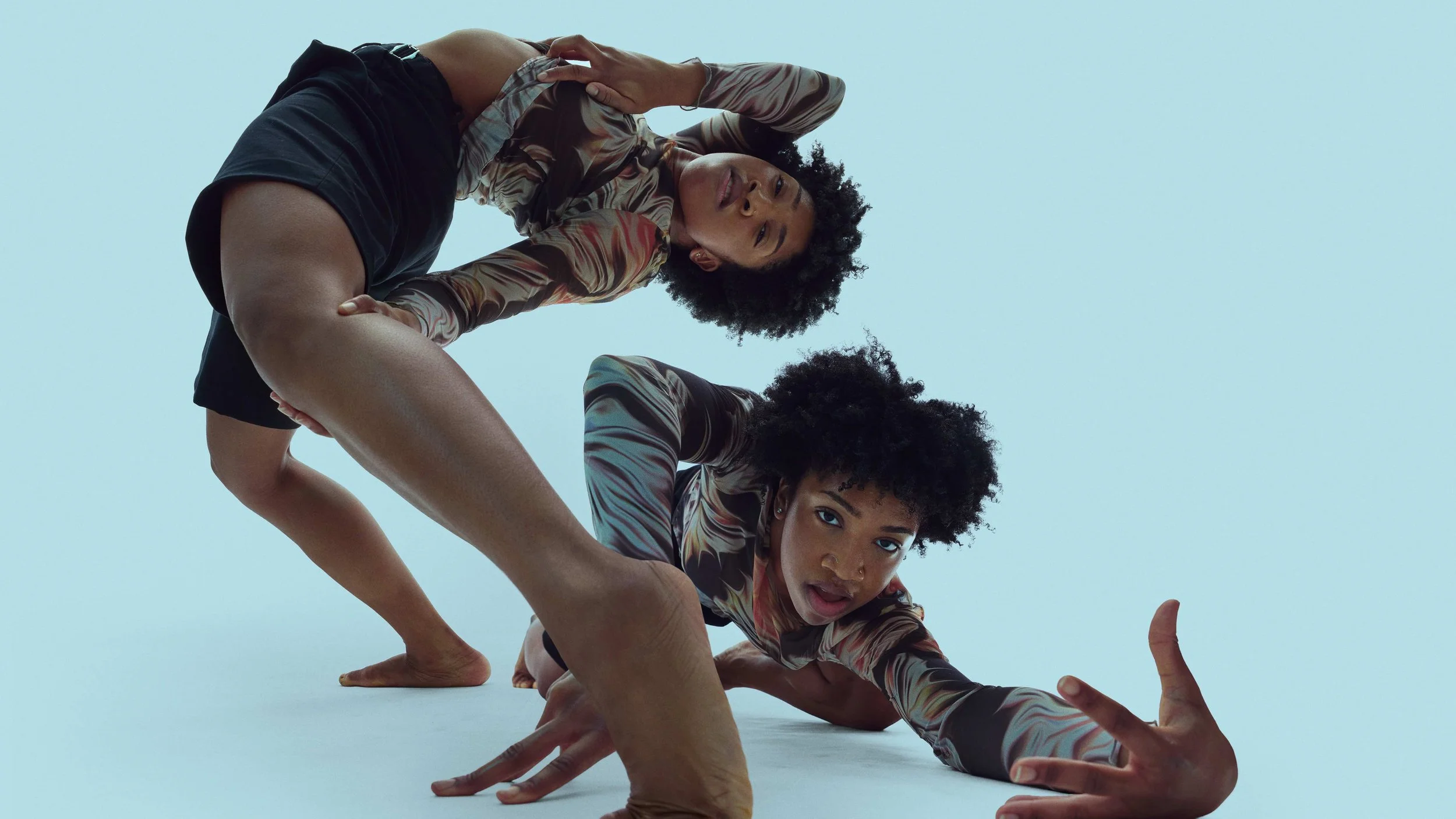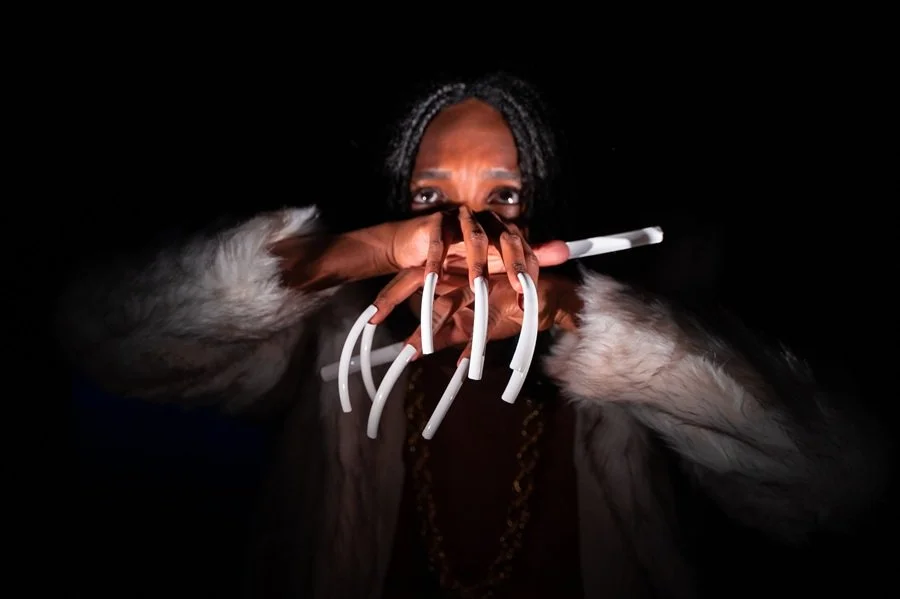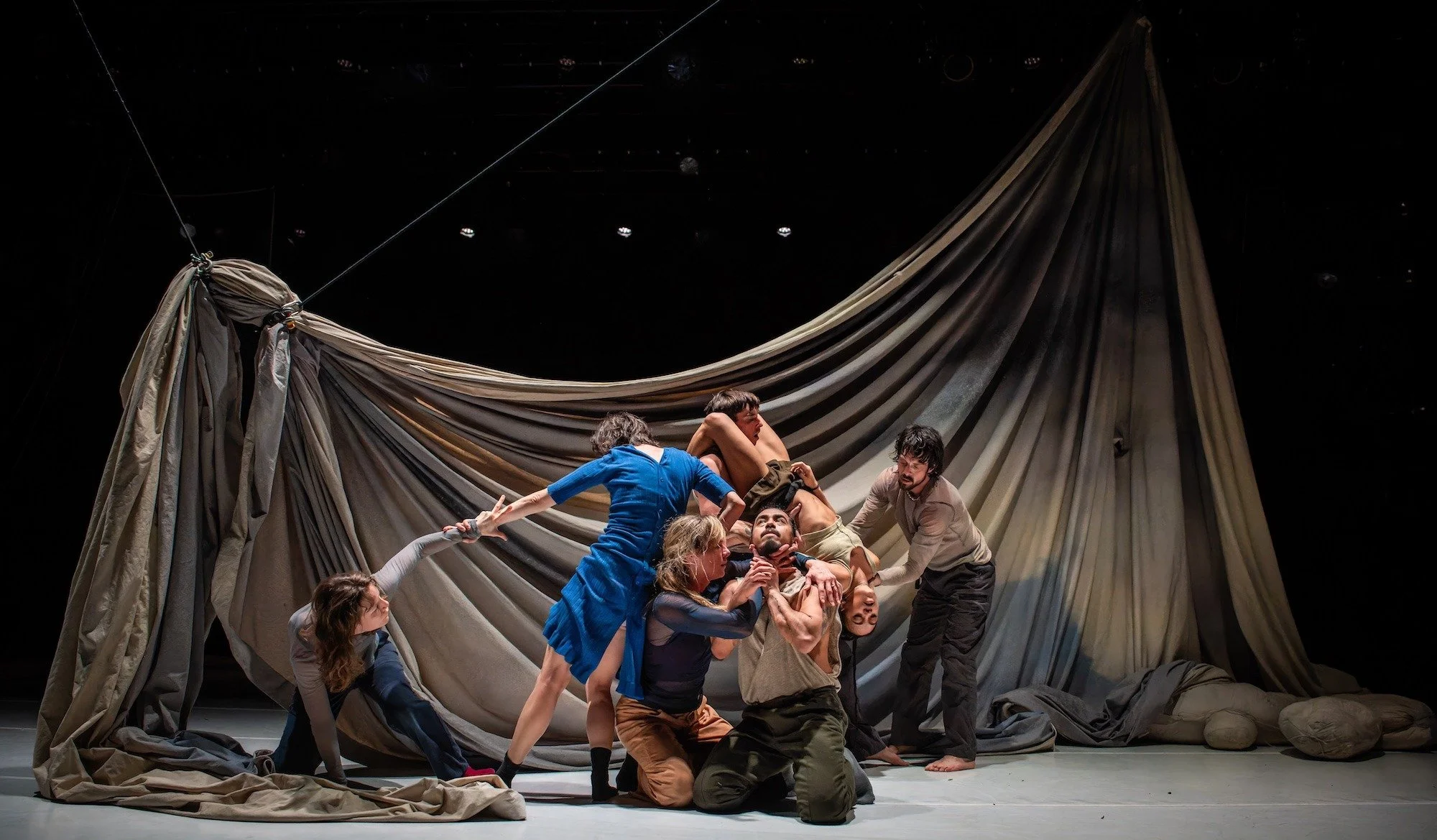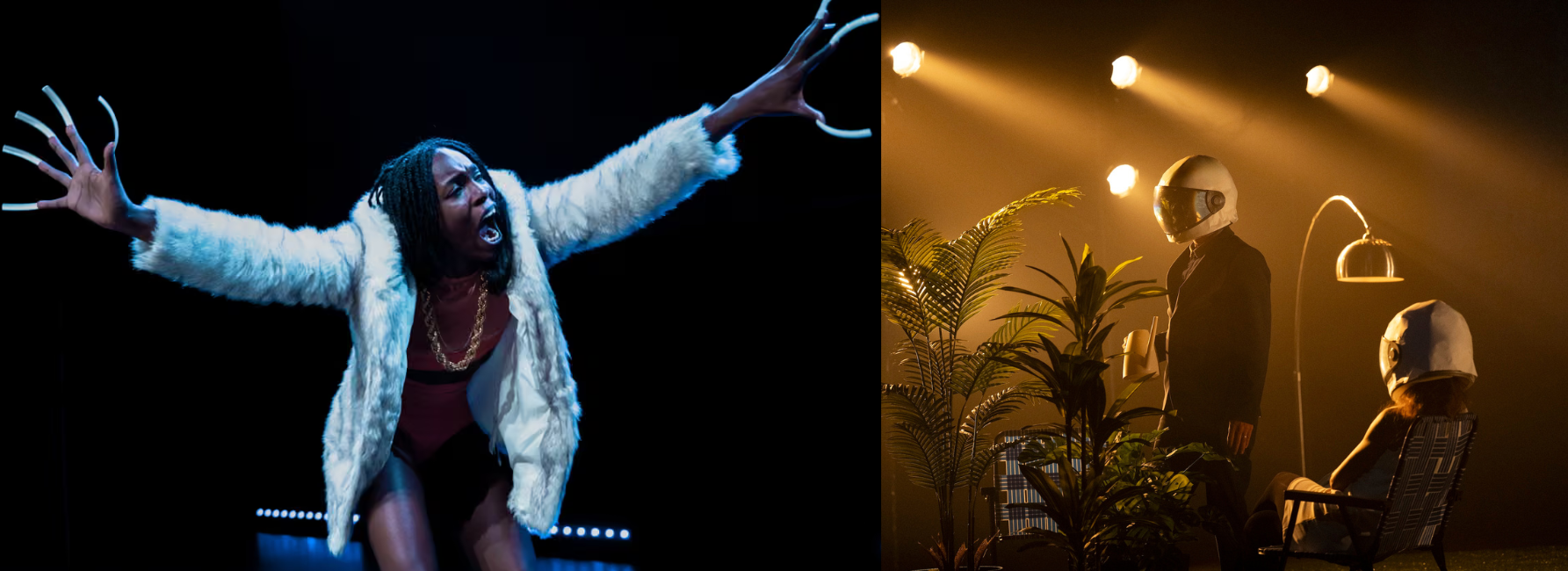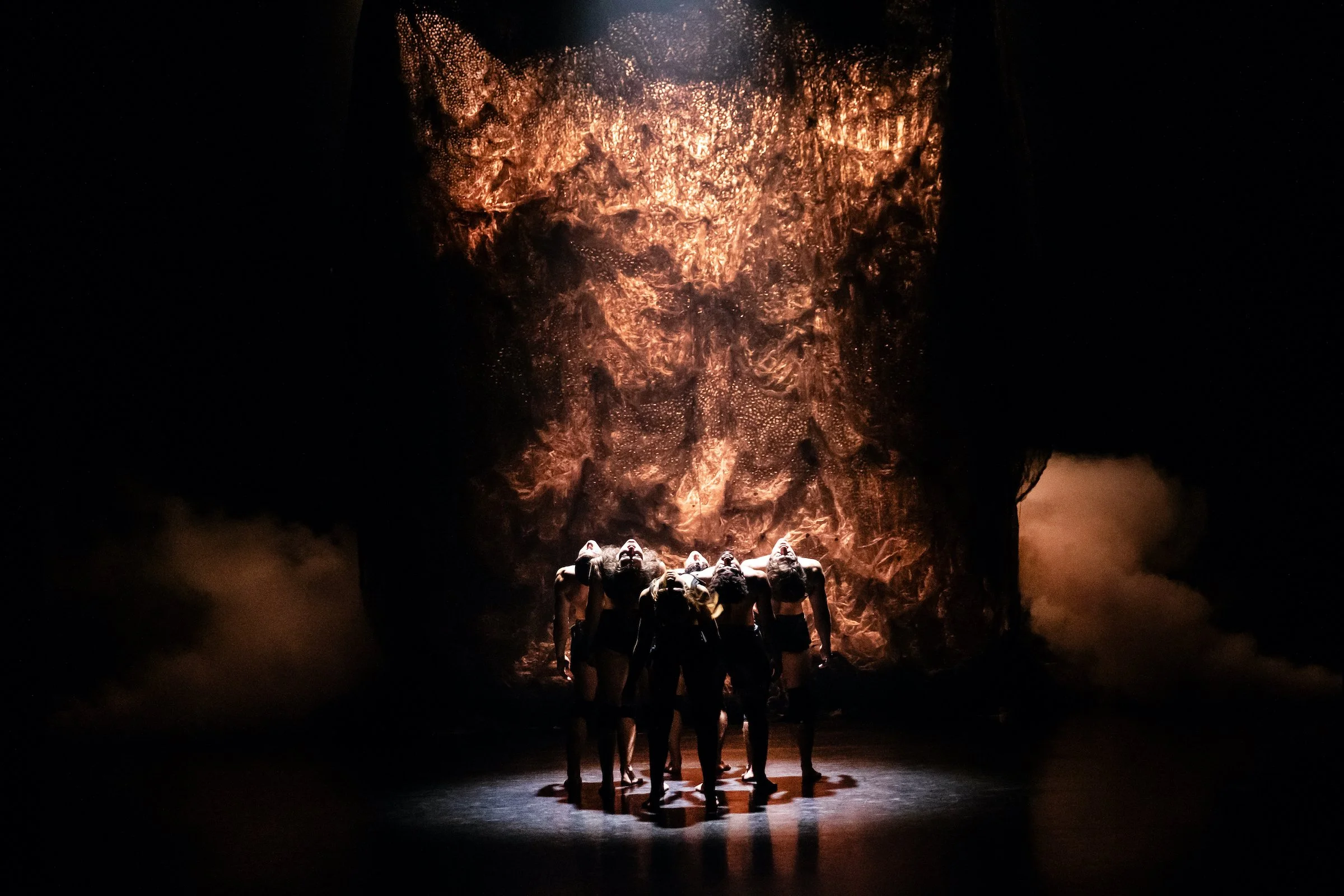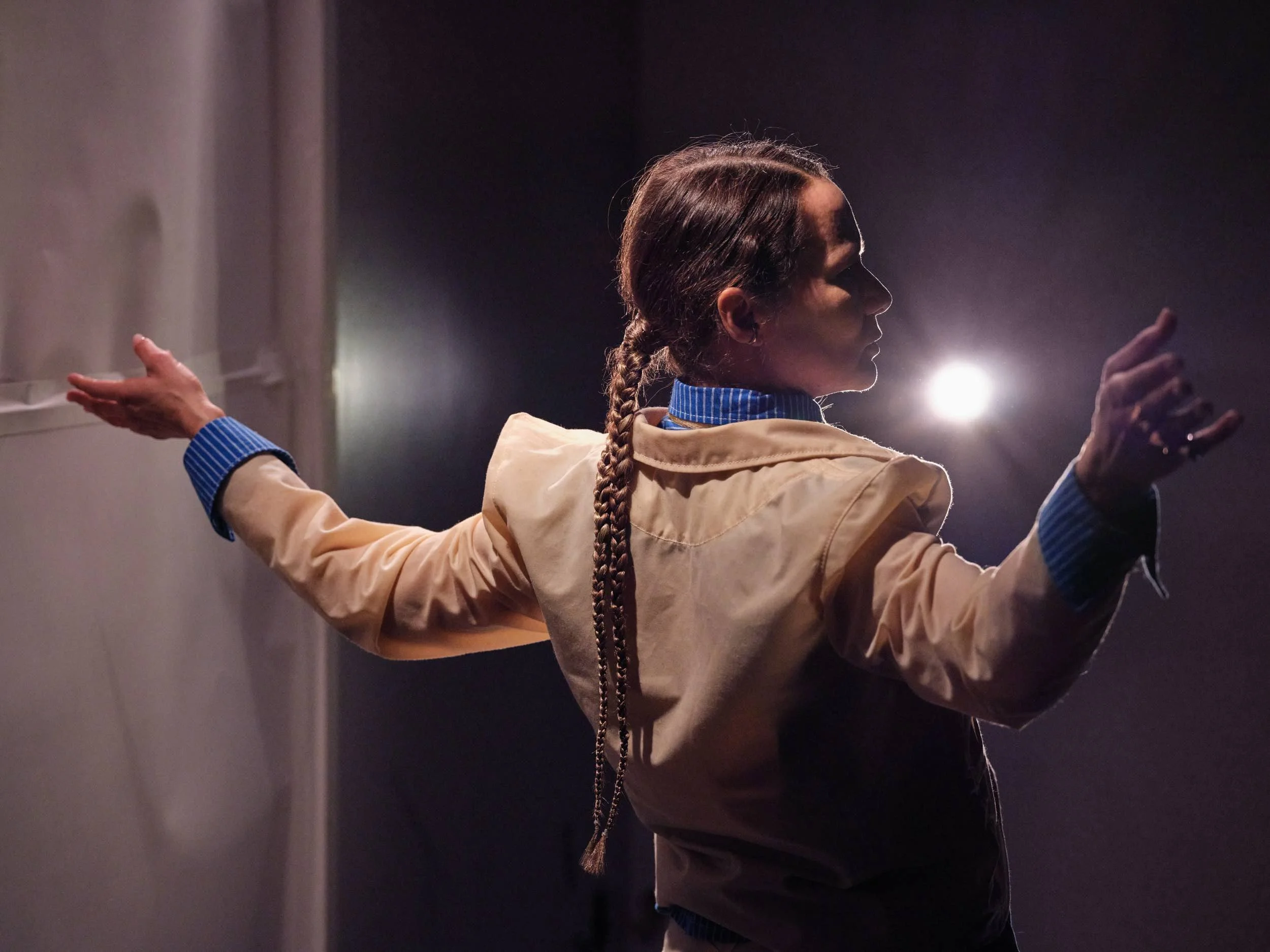From South Africa, Broken Chord shares the overlooked story of The African Native Choir
South African vocalists join performer-choreographer Gregory Maqoma and Vancouver Chamber Choir in the ambitious dance work’s Canadian premiere
Broken Chord. Photo by Lolo Vasco
DanceHouse and Vancouver New Music present Broken Chord by Gregory Maqoma and Thuthuka Sibisi featuring Vancouver Chamber Choir from February 23 to 25 at 8 pm at Vancouver Playhouse; pre-show chats take place each night at 7:15 pm
WHEN SOUTH AFRICAN choreographer and performer Gregory Maqoma visited a museum exhibition in his home base of Johannesburg a few years ago, he was not expecting to be so utterly moved that he would erupt into an improvised dance right then and there in the middle of the venue.
Quite by chance, Maqoma had come across a show at The Apartheid Museum dedicated to The African Native Choir. Active in the late 1800s, the 16-member missionary-educated ensemble travelled to Britain, Canada, and the U.S. by boat to raise funds for a technical school for the expanding Black labour force. They performed in African dress while singing English hymns, operatic choruses, and traditional African songs. The 2016 exhibition, called The African Choir 1891 Re-imagined—presented as part of the Black Chronicles Archive Laboratory—featured a score by Johannesburg composer-musician Thuthuka Sibisi .
“I was just possessed by the music and started dancing in the centre of the exhibition,” Maqoma says in a WhatsApp interview with Stir from Johannesburg. “I must have danced for 45 minutes. The music just kept filling me.
“Then I wondered what it was like for them [the choir members] to be looked at in 1891,” Maqoma explains. “At that time, it was very unpopular for an African choir to travel offshore at a time when the UK, the British, were very much the colonizers of our country. How did they treat the Black body? It’s a conversation that’s quite relevant today, how we look at each other and treat each other differently because of differences in the colour or tone of our skin. It immediately became a subject of interest for me. I wanted to speak from a Black perspective about ‘How are we looked at?’”
Maqoma approached Sibisi with an idea. The pair collaborated to create Broken Chord, which is about to have its Canadian premiere in Vancouver via DanceHouse and Vancouver New Music. With musical direction by Sibisi and choreography by Maqoma, the ambitious multidisciplinary production sees Maqoma dancing alongside four South African vocal soloists—Tshegofatso Khunwane, Lubabalo Velebhayi, Xolisile Bongwana, and Zandile Hlatshwayo—and an on-stage a cappella choir. Everywhere the show runs, the creative team invites a local choral ensemble to take part; in this case, it’s collaborating with Vancouver Chamber Choir.
The work weaves in traditional Xhosa dance with contemporary movement, while the evocative soundscape features recorded personal accounts of members of the African Choir. As it re-creates this widely overlooked piece of history, Broken Chord explores migration, borders, the lasting impacts of colonization, and much more.
“It’s not just about the choir, but also about how the choir had to break all kinds of barriers to exist,” Maqoma says. “They were on a mission to raise money, but they never saw much of that money, because at the head of them was a white British man acting as their agent. These are the kinds of stories that continue to repeat themselves in different ways.
“So many years have passed, and that similar pain is still felt,” he says. “I feel it as well—going through borders, so many times we are turned aside and subjected to those questions: ‘What are you doing where? What do you want? What is your reason for travel? When are you going home? Where is your home? Where are your papers?’ We continue to be subjected to that wherever we travel.”
Maqoma admits that the themes in Broken Chord make for some challenging situations with each local choir that the team enlists, particularly when the invited artists are white. But working through such potentially fraught subject matter is necessary.
“We want to discover and reimagine that discourse, to bring about uncomfortable questions—questions that we are grappling with ourselves also,” Maqoma says. “It’s important to continue on that narrative. We have strong voices from South Africa and strong voices representing the European empire that are going to be in opposition in a sense. In some ways, it’s a battlefield in song, in words, in black and white. It’s a kind of confrontation in a way. But somehow we connect on a personal level with every choir we work with. The most fundamental thing we say is ‘We are all in this together. We are confronting that legacy together. It’s a legacy we are all carrying.’ I hope that this kind of a confrontation and this kind of work can somehow allow us to tap into the truth, tap into the kind of hurt that someone else might be feeling.
He adds: “It’s quite intense. At all the rehearsals, wherever we meet, there are always tears.”
Gregory Maqoma. Photo by Moeletsi Mabe
Thuthuka Sibisi. Photo by Moeletsi Mabe
Maqoma and Sibisi coproduced the large-scale piece with Barcelona’s Festival Greca, Manchester International Festival, Paris’s Théâtre de La Ville, Weimar Arts Festival, Festspielhaus St. Pölten, Torinodanza Festival/Teatro Stabile di Torino–Teatro Nazionale, Festival Aperto/Fondazione I Teatri–Reggio Emilia, Stanford Live, and Sadler’s Wells.
Dance became a passion for Maqoma during his youth as a form of refuge from escalating political tensions in his birthplace of Soweto. He has gone on to earn international acclaim for his body of work, including the Chevalier de L’Ordre des Arts et des Lettres (Knight of the Arts & Literature) Award from the French government in 2017. More recently, he collaborated with Idris Elba and Kwame Kwei-Armah in a production called Tree; in 2020, he delivered the International Dance Day message under the auspices of the International Theatre Institute and UNESCO. Maqoma also choreographed VIA KANANA for South African dance company Via Katlehong, the work having streamed across Canada last season via Digidance.
Music and dance, Maqoma says, are intricately intertwined in African storytelling. In this sense, he feels he’s carrying the torch for those choirists who came before him. “It’s the heartbeat that drives movement; it is the sound that drives the soul and spirit of the dancer,” he says. “We continue to be hopeful for a better country, for a better world. I’m hopeful we can allow ourselves to be visible enough so that the world knows that there is Black existence and it’s going anywhere.






